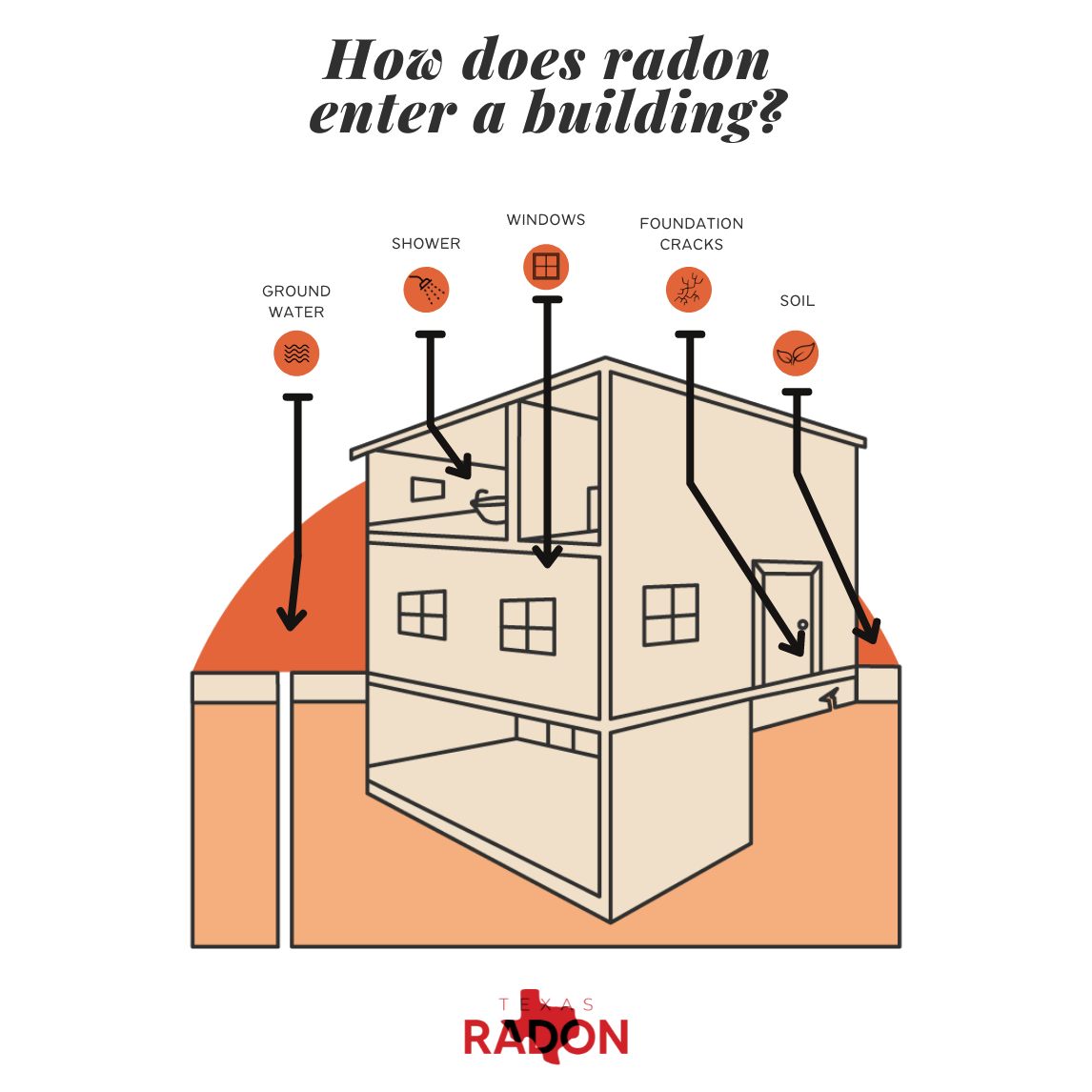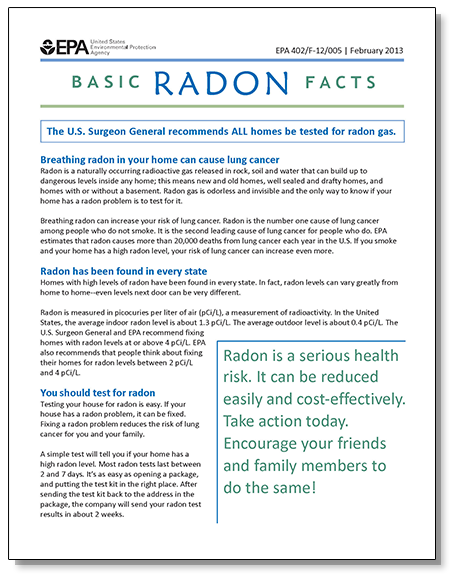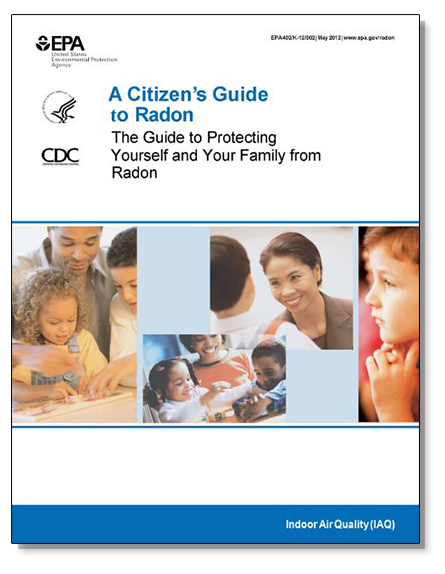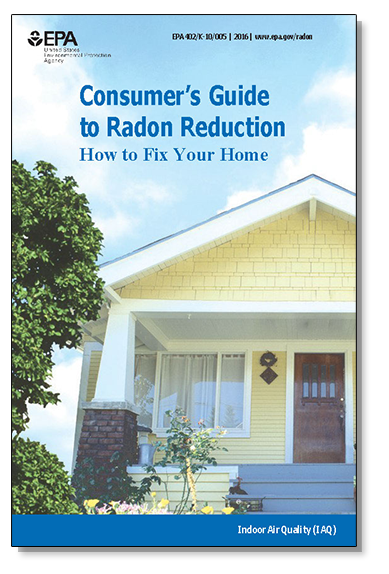Radon in the Home
How Does Radon Get into the Home?
Radon is an odorless, colorless, radioactive gas that enter your house or apartment through foundation cracks, your shower, windows, soil, and ground water. Radon that accumulates into homes may decay into radioactive, chemically reactive particles that attach themselves to dust in the home environment. If inhaled over a long period of time, these radioactive particles may cause damage to the lung tissues and increase the risk of developing lung cancer. The only way to know your radon level is through testing your home for radon.

When Should You Test?
On average, radon concentrations in Texas are lower than other parts
of the United States, but concentrations of radon in Texas residences
can still exceed the EPA limit of 4 pCi/L. It is recommended that all homes be tested for radon to ensure a healthy, indoor air environment.
How Can I Test My Home?
There are two principal radon testing methods for home use. Most
indoor radon tests are short-term tests performed using simple activated charcoal canister kits. These tests passively absorb small
amounts of radon over 3-7 days, and the canister is subsequently
analyzed by an EPA-approved lab. Kits are available from local
hardware stores for approximately $15-$25, or you may request a free radon test kit, depending on where you live. You may also purchase test kits online from numerous
private companies or through the National Radon Program Services.
The other method is a long-term test which lasts three months to one year. Long-term tests are also available from local hardware stores but are more costly. A common long-term test is an alpha-track test that detects radiation and is then analyzed by an EPA-approved lab. Long-term tests are generally recommended when results from short-term tests show radon values between 4 and 8 pCi/L.
The Texas Radon Group offers free radon test kits for Texas individuals who qualify.
Next Steps
For information on further action, and mitigation guidance, please see "Consumer's Guide to Radon," or visit the pages, Test for Radon or Elevated Radon Action. For helpful resources and publications, please refer to Homeowner Radon Resources.
For further questions, please view Frequently Asked Questions or Contact the Texas Radon Group.
Radon
-
Address
911 Boston Ave | Box 41023 | Lubbock, TX 79409-1023 -
Phone
806.834.0370 -
Email
kayleigh.millerick@ttu.edu



